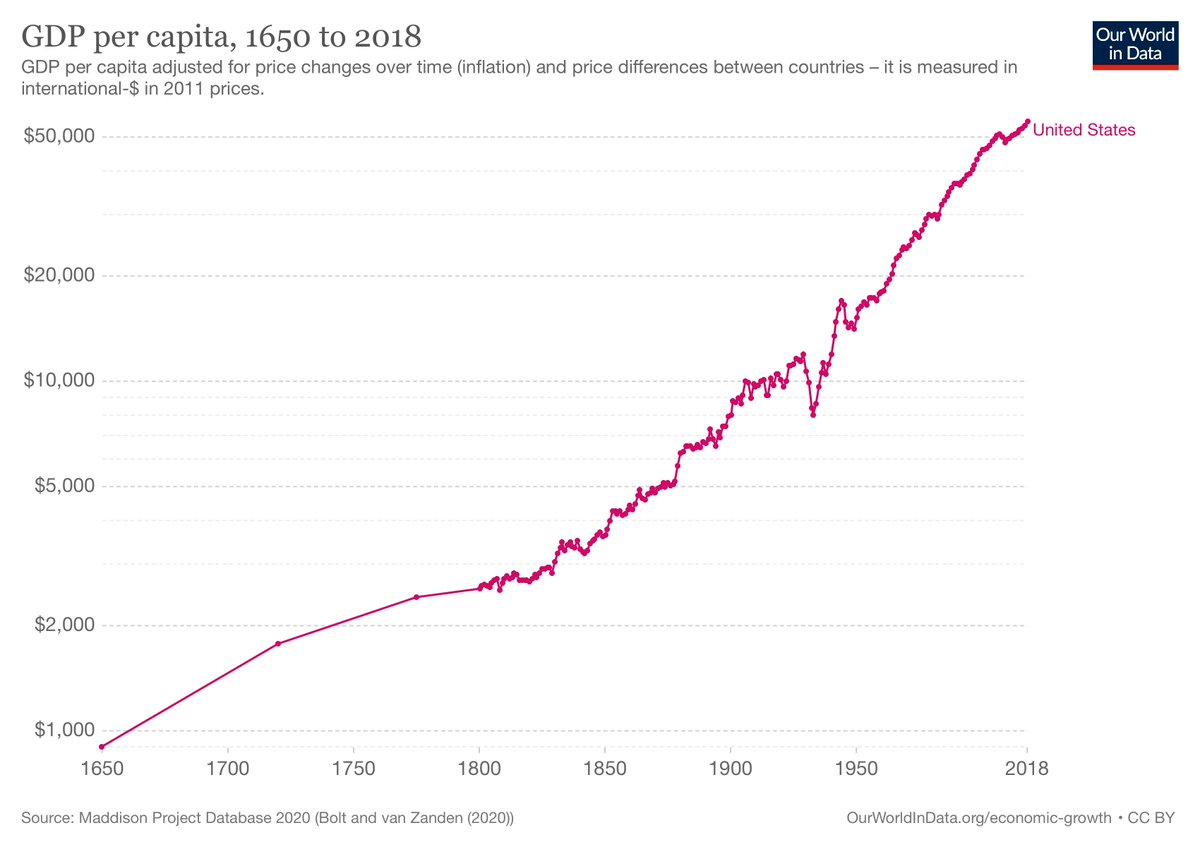Cathie @CathieDWood, Not a chance was US stock market cap/GDP greater in the late 1800s and early 1900s than it is today. It was a FRACTION of today& #39;s level. It measured 90% at the stock market PEAK in 1929 and closed 2020 at a record 183%. Close to 200% now. Far less business 1/ https://twitter.com/CathieDWood/status/1381230136918433792">https://twitter.com/CathieDWo...
was done by public companies then v today. Absolute levels of global trade were on the order of 20% of today& #39;s levels. 1929& #39;s market cap was $93B on GDP of $103.7 billion. Of course the stock market then fell by 89%, despite all of the revolutionary technologies you mentioned. 2/
Families spent half of their income on food at the end of the 19th century. You are absolutely correct that electricity, the telephone and automobiles allowed transformative growth in income & output. However, your conclusion that "genomic sequencing, robotics, energy storage, 3/
artificial intelligence, and blockchain technology dwarf that of the late 1800s/early 1900s." is misguided. While disruptive, they will not be remotely more transformative than those from 1870 to the 1950s. The technologies you highlight, cool yes, will prove only incremental.4/
Canals, rails, electricity, telegraph/telephone, autos, vaccines & the airplane allowed for a move from a non-publicly traded agrarian economy. I suggest looking into how much more output per person, output per hour & hours worked per person have evolved over time & how little 5/
they change in modern times. I highly recommend you read Robert Gordon& #39;s The Rise and Fall of American Growth. You& #39;ll see how little technological change impacts the economy & our standard of life today. You will also see that more than adequate data exists to properly measure 6/
Mkt Cap, GDP, population, hours worked. Check BEA data. Just think about how odd it is suggesting market cap/GDP was 2x-3x today& #39;s levels in the late 1800s and early 1900s. At almost 200% today, you think the stock market could have measured 400% to 600% of GDP? Nope. 7/

 Read on Twitter
Read on Twitter



